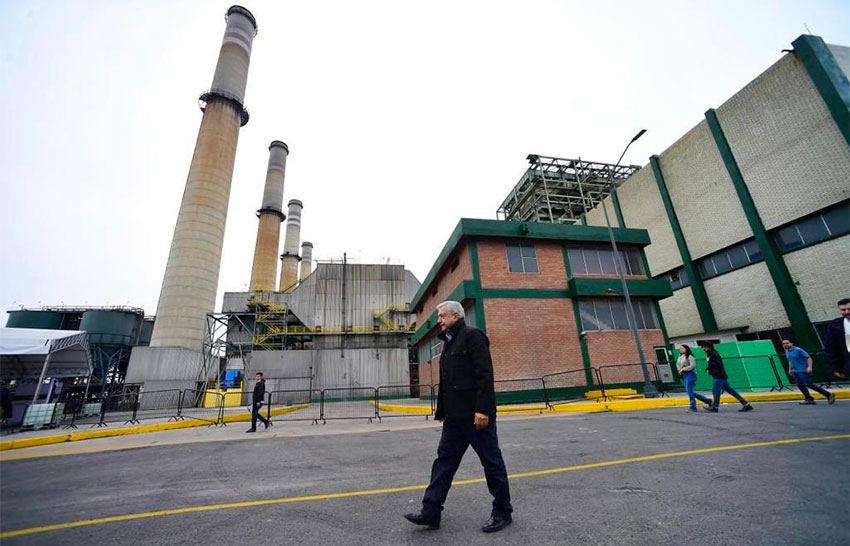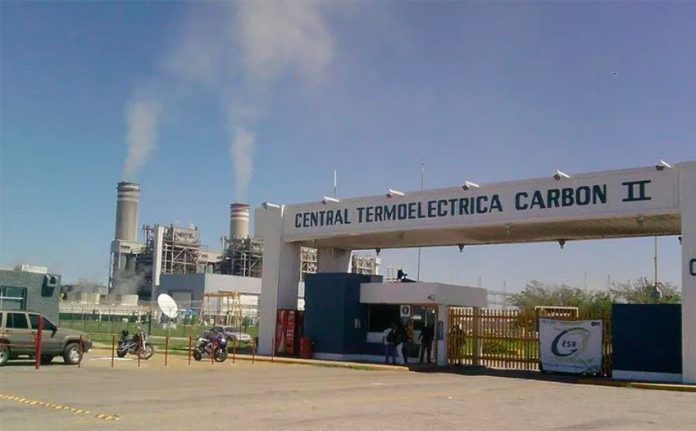President López Obrador has rejected complaints by a group of United States lawmakers about policies in Mexico favoring state-owned energy companies over private firms, asserting that it is not the role of government to protect private interests.
A group of 43 U.S. senators and representatives wrote to President Donald Trump last Thursday to urge him to find a resolution with the Mexican government that maintains “current market conditions … along with certainty and fairness for U.S. companies operating and competing in Mexico.”
The lawmakers said that actions by the Mexican government “threaten U.S. energy companies’ investment and market access and undermine the spirit of the United States-Mexico-Canada Agreement (USMCA),” which took effect July 1.
After noting the benefits the previous government’s 2014 energy reform – which opened up the Mexican market to foreign and private companies – brought to U.S. firms, the lawmakers said that “recent reports indicate that the Mexican government is providing preferential regulatory treatment for [state oil company] Pemex and delaying or canceling outright permits for U.S. energy companies.”
Supporting those “anecdotal experiences” is a leaked memo from López Obrador that directs authorities to use all available resources within the regulatory framework to protect Pemex and the Federal Electricity Commission (CFE), they said.
The lawmakers also noted that members of the ruling Morena party have presented initiatives that would roll back the 2014 energy reform and and “seek to relinquish all contracts currently in force.”
“These efforts violate and contradict the spirit, if not the letter, of the USMCA, an agreement among whose primary objectives are to promote growth among the participant countries,” they said before urging Trump to find a resolution.
Speaking at an event in Nava, Coahuila, Saturday, to mark the recommencement of operations of an old state-owned coal-fired power plant, López Obrador said his government would continue to favor Pemex and the CFE over private firms, asserting that the USMCA doesn’t set rules for Mexico’s energy sector.
“In line with the legal framework we have, we are going to give preference to Pemex and the Federal Electricity Commission, let that be clear,” he said.
The Associated Press noted that appearing at the reopening of a coal-powered plant would be “bad optics” for most leaders as much of the world shifts to renewable energy and cleaner gas-fired plants but López Obrador’s remarks indicated that he was unperturbed.
“I am very happy to be here … at the Nava thermoelectric complex, to tell those who defend neoliberal policy that we are not going to retreat one step,” he said.

The president said the U.S. lawmaker’s complaints that his government is protecting state-owned companies is a source of “satisfaction” and “pride.”
“What is the role of government? To protect private interests? No! The only businesses that public servants should be interested in are state-owned companies,” López Obrador said.
The president said that his wage isn’t paid by Repsol, a Spanish company he claims received unduly favorable treatment as a result of the energy reform, but rather the Mexican people and for that reason he won’t back down and stop defending the interests of Pemex and the CFE.
The federal government has certainly not been shy in implementing policies that benefit the state-owned firms, which López Obrador claims were neglected by previous administrations.
In May the Energy Ministry (Sener) published a new energy policy that imposed restrictive measures on the renewable energy sector that appeared aimed at restricting its expansion in Mexico.
In addition, the National Energy Control Center (Cenace) suspended national grid trials for renewable energy projects under the pretext that the reliability of supply had to be guaranteed during the coronavirus crisis. Industry groups said that move would affect 28 recently-built wind and solar projects and 16 that were under construction. All told US $6.4 billion in investment, much of it from foreign companies, was to be affected, the groups said.
Both the publication of the Sener policy and the Cenace decree triggered injunction requests from the private sector and environmental groups, some of which have been granted.
The Supreme Court suspended the Energy Ministry’s new energy policy in June, ruling that it violated the constitutionally enshrined principles of free competition because it placed a range of restrictions on the renewable sector including limits on the number of permits that can be issued for new wind and solar projects. The court’s decision was confirmed last week.
According to Kenneth Smith, a former trade official who headed up Mexico’s technical negotiating team in USMCA talks with the United States and Canada, there will likely be many more lawsuits against the government in relation to its energy policies.
In contrast to López Obrador’s view, the USMCA incorporates state monopoly-ending, market-opening measures outlined in the 2014 energy reform, he said.
“There could be cases in which the countries [the United States and Canada] bring lawsuits against Mexico for a violation of the treaty commitments,” Smith said. “Individually, [U.S. and Canadian] companies could also file lawsuits against the Mexican government.”
An unnamed energy sector insider told the newspaper Reforma that three international arbitration processes aimed at having Mexico respect energy sector rules put in place as a result of the 2014 reform are underway and that another is in the pipeline.
“A clash is coming between the current energy policies and the regulatory framework that is protected by international agreements under which investment was made,” the person said.
Echoing the warnings of business leaders and analysts, the secretary of the energy committee of the lower house of Congress warned that foreign investment to Mexico will suffer if the president doesn’t adopt energy sector policies that are more friendly to private firms.
Hernán Salinas Wolberg, a deputy with the National Action Party, said the complaints of the United States lawmakers are completely justified and charged that López Obrador needs to be provided with better advice on energy matters.
“It’s clear that the complaints of the United States legislators are well-founded; they’re justified both by the content of the free trade agreement and by … other instruments,” he said.
“There are two paths here: rectify [policies] … to adapt to the current legal framework [built on the 2014 reform] or modify the legal framework with the disastrous economic consequences that could have for the country,” Salinas said.
“What can be seen with complete clarity is that this fixation that [López Obrador] has on artificially improving the conditions of the CFE and Pemex at all costs, even by breaking international commitments …, will be very expensive for Mexicans.”
Source: Associated Press (en), El Universal (sp), Reforma (sp)
